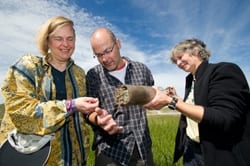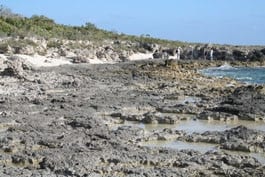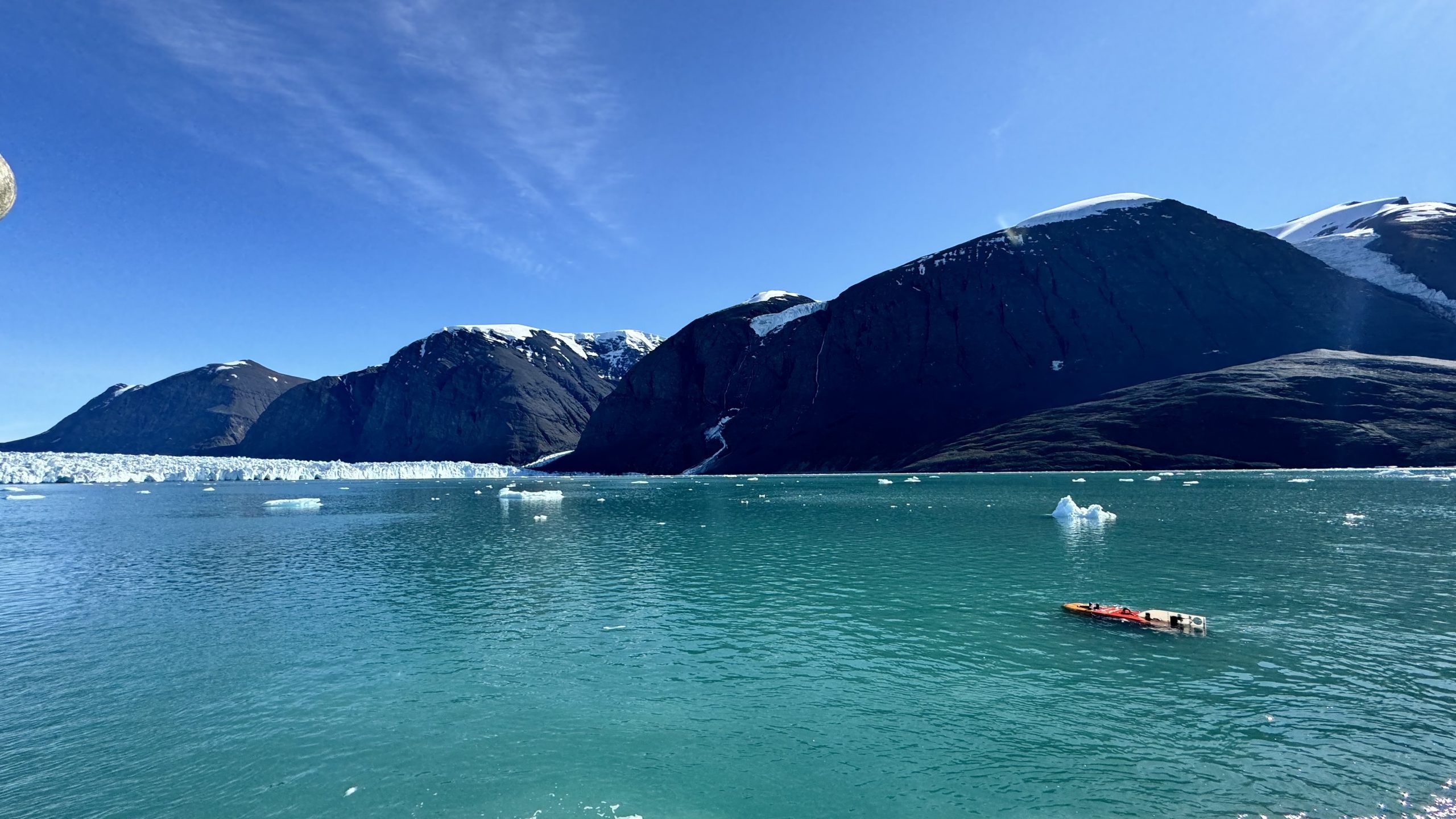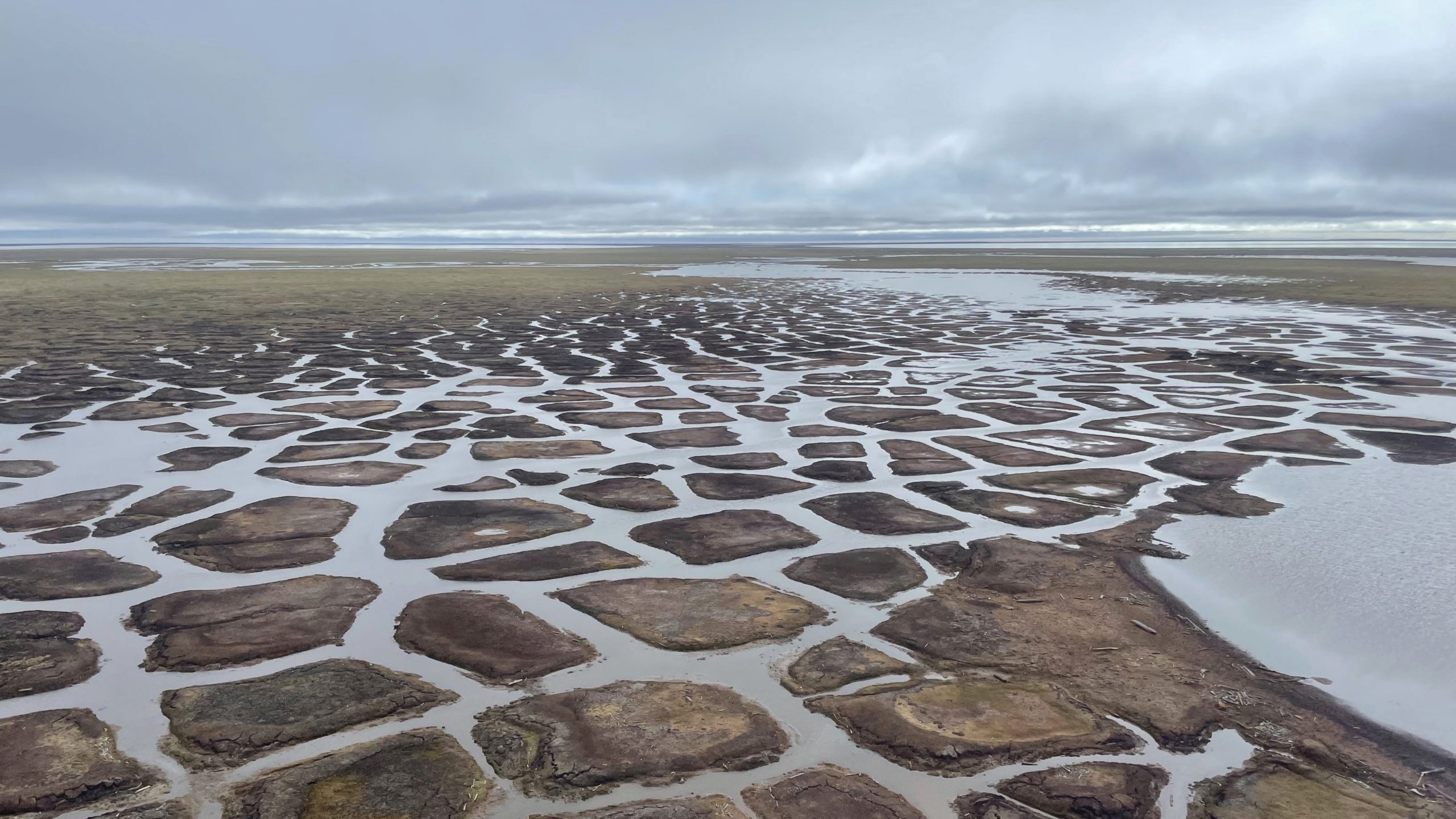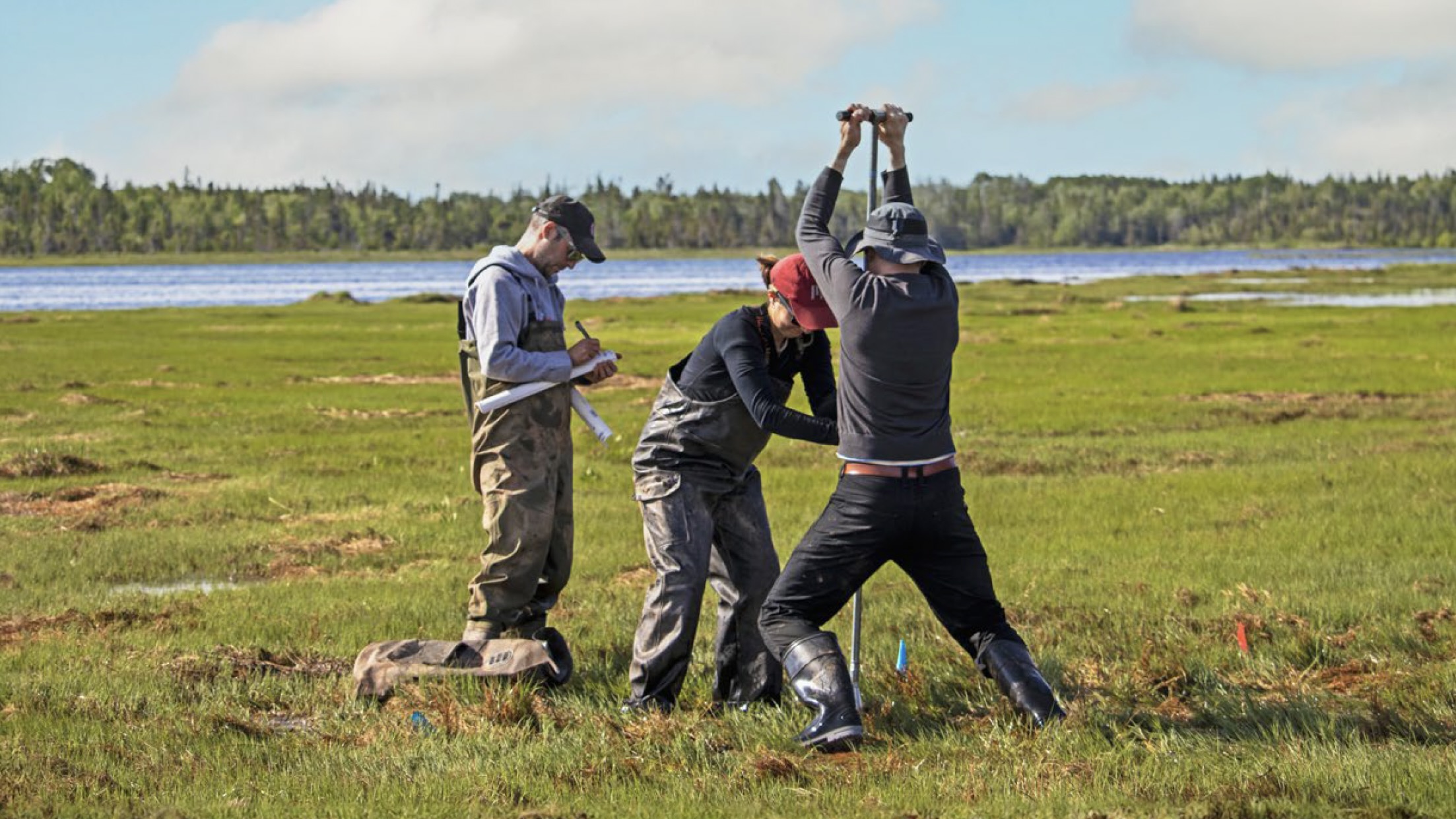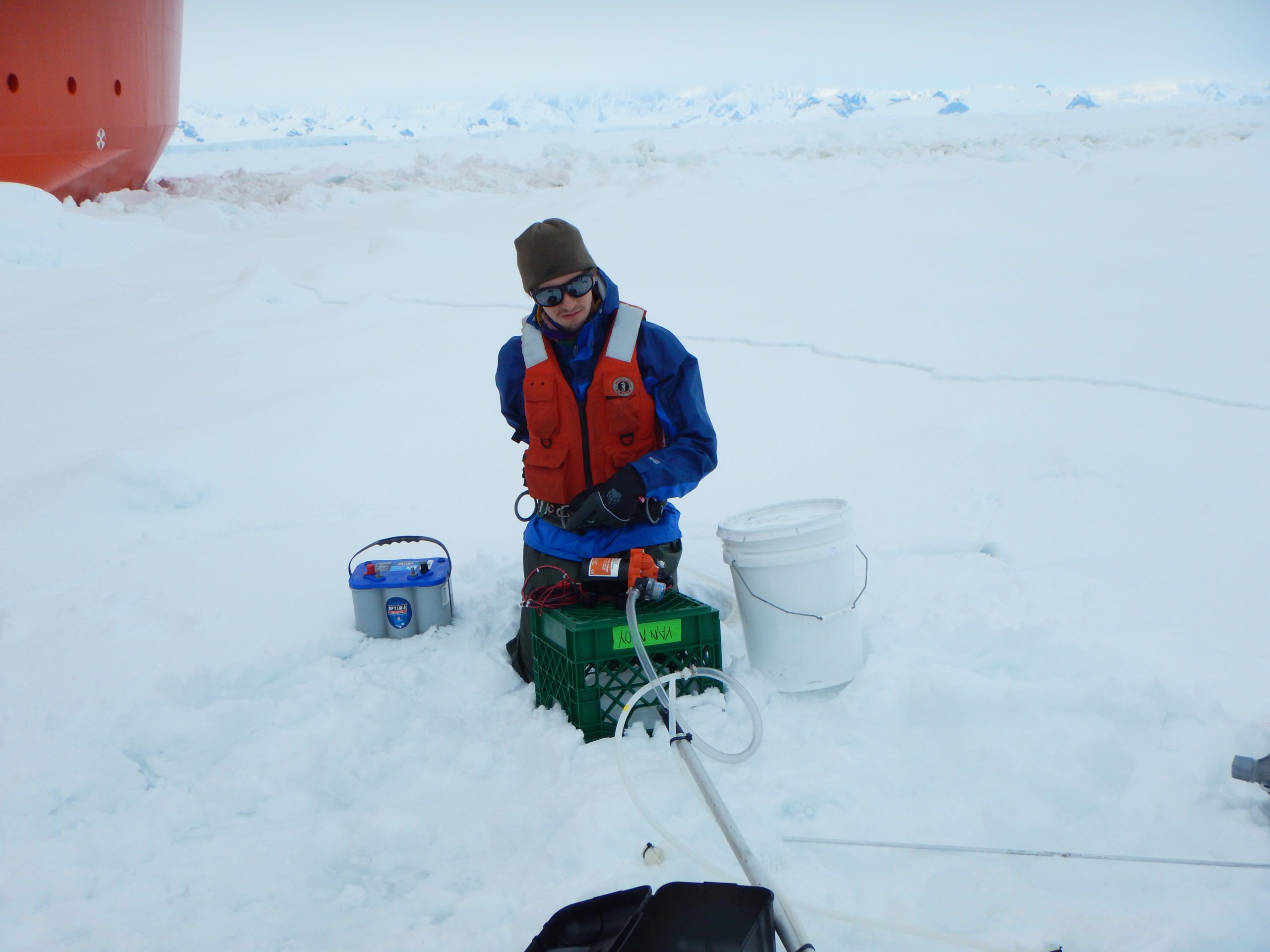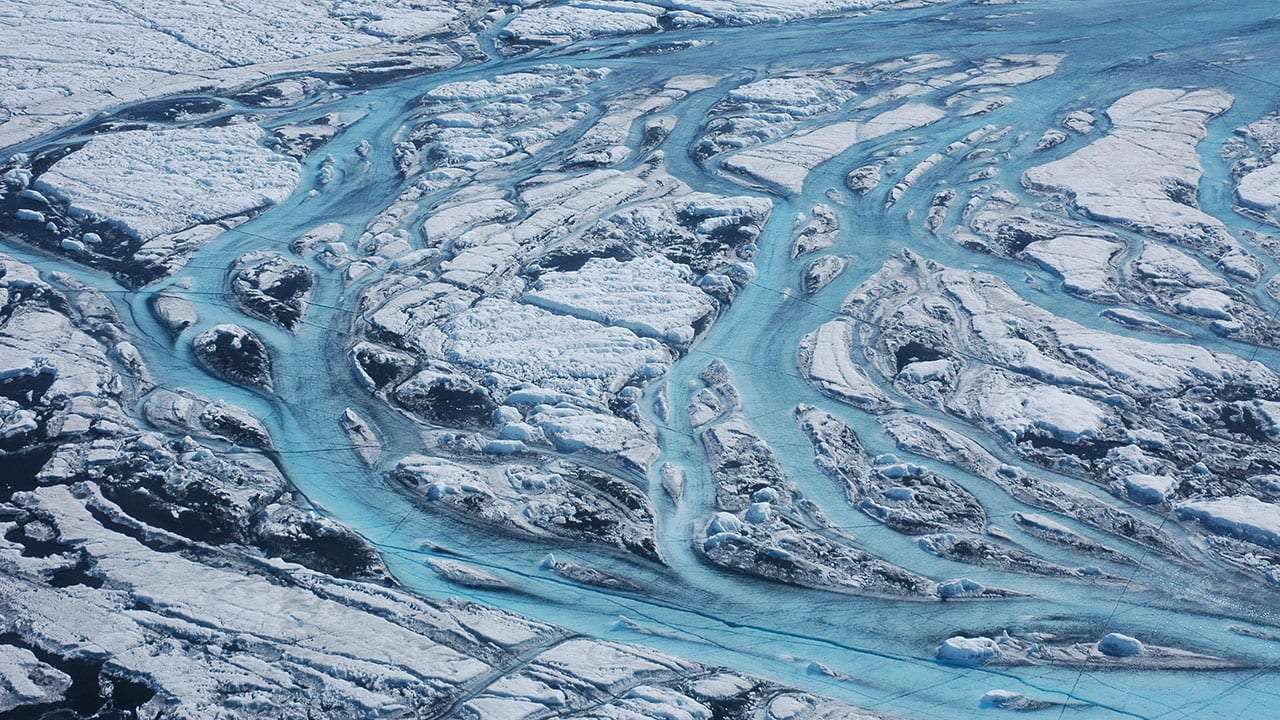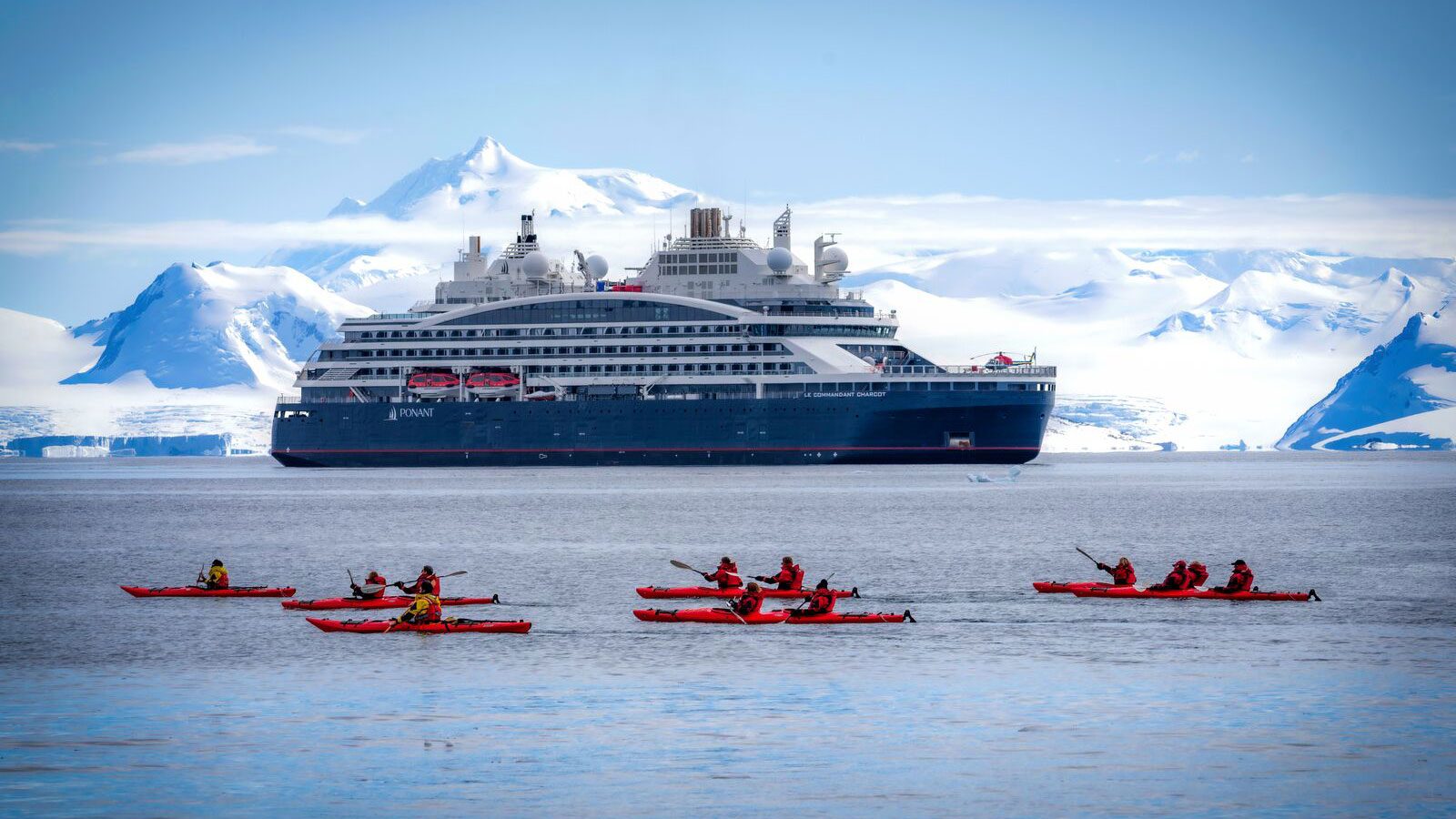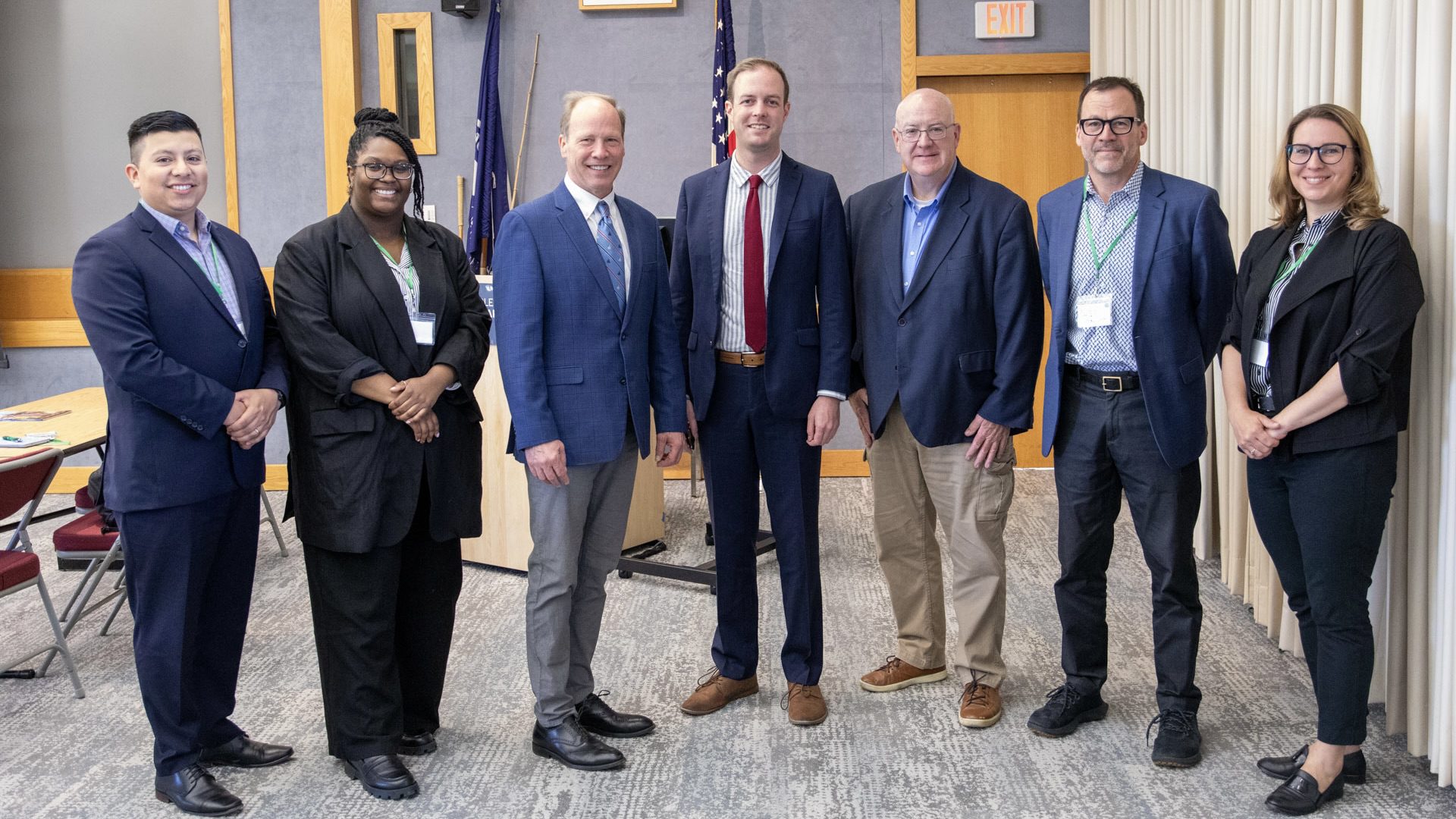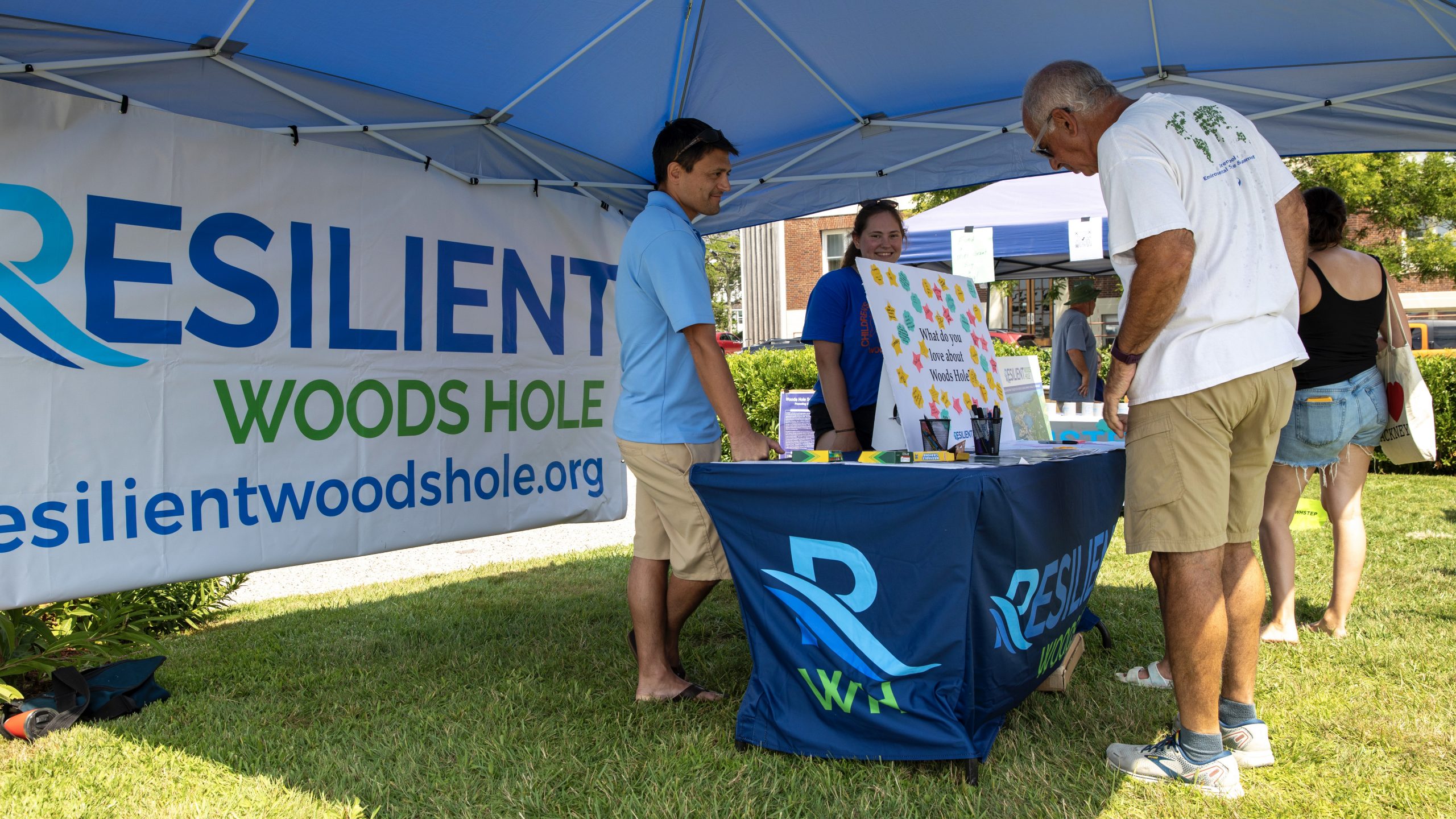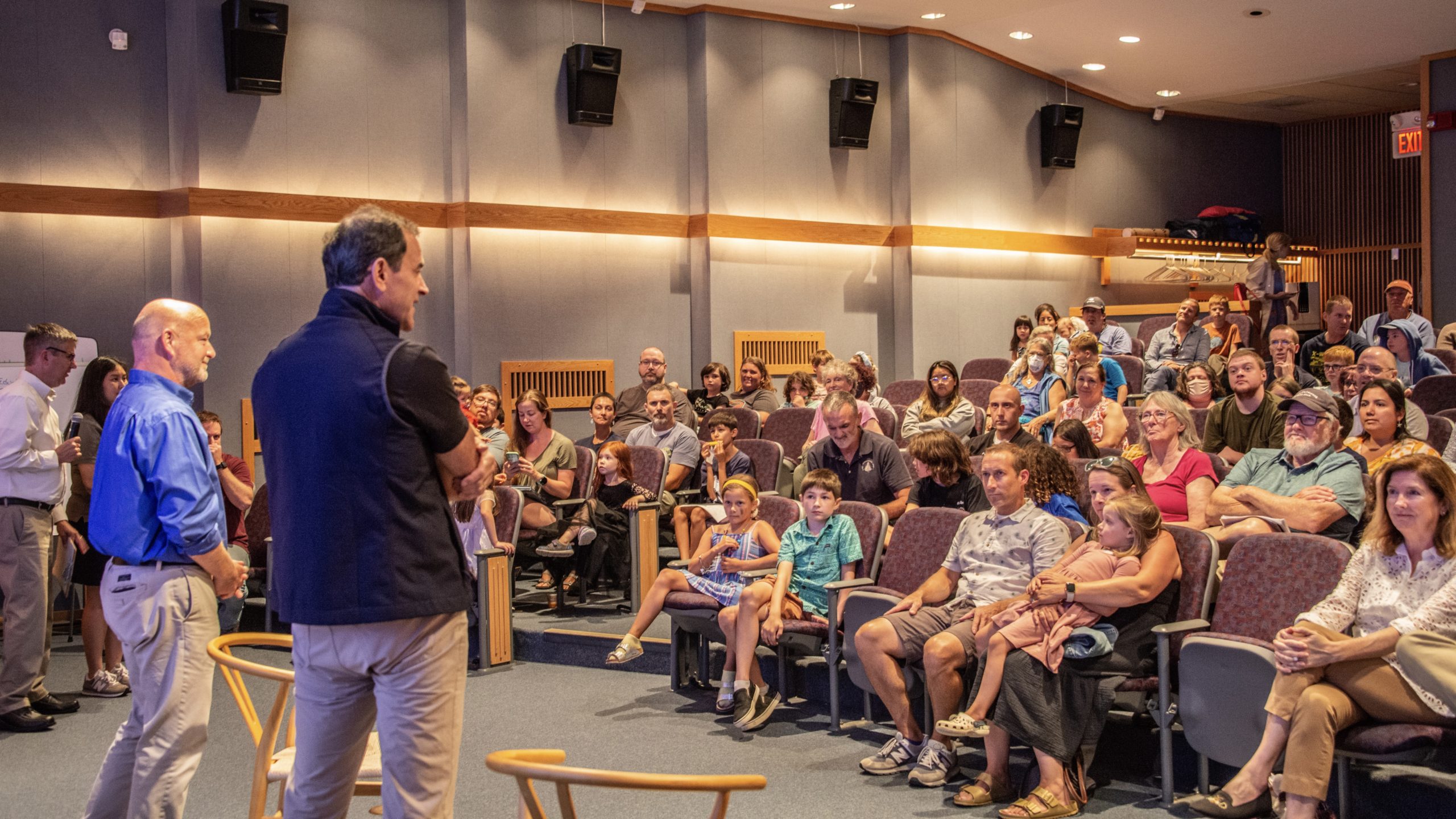News Releases
Tracking Fish Through a Coral Reef Seascape
Ocean scientists have long known that juvenile coral reef fishes use coastal seagrass and mangrove habitats as nurseries, later moving as adults onto coral reefs. But the fishes’ movements, and…
Read MoreMelting Sea Ice Threatens Emperor Penguins, Study Finds
At nearly four feet tall, the Emperor penguin is Antarctica’s largest sea bird—and thanks to films like “March of the Penguins” and “Happy Feet,” it’s also one of the continent’s…
Read MoreResearchers Report Potential for a “Moderate” New England “Red Tide” in 2012
New England is expected to experience a “moderate” regional “red tide” this spring and summer, report NOAA-funded scientists working in the Gulf of Maine to study the toxic algae that causes the bloom. The algae in the water pose no direct threat to human beings, however the toxins they produce can accumulate in filter-feeding organisms such as mussels and clams— which can cause paralytic shellfish poisoning (PSP) in humans who consume them.
Read MoreWHOI Researchers, Collaborators Receive $1.4 Million to Study Life in Ocean’s Greatest Depths
Scientists from the Woods Hole Oceanographic Institution (WHOI), University of Hawaii, Whitman College and international colleagues will conduct the first systematic study of life in the deepest marine habitat on…
Read MoreStudy of Patagonian Glacier’s Rise and Fall Adds to Understanding of Global Climate Change
Increased global temperatures are frequently viewed as the cause of glacial melt, but a new study of Patagonia’s Gualas Glacier highlights the role of precipitation in the glacier’s fluctuation. The study, conducted by Sbastien Bertrand of the Woods Hole Oceanographic Institution (WHOI) and his colleagues, compares past temperature and rainfall data with sediment records of glacier fluctuations and the historical observations of early Spanish explorers.
Read MoreResearchers from WHOI and MBL Receive $1.2 Million Grant for Collaborative Salt-Marsh Study
Scientists from the Marine Biological Laboratory (MBL) and the Woods Hole Oceanographic Institution (WHOI) were recently awarded a $1.2 million collaborative grant from the National Science Foundation (NSF) for studies on the role of sulfur-oxidizing bacteria in salt marsh nitrogen and carbon cycling. The fieldwork will be conducted at the Plum Island Ecosystem Long-Term Ecological Research (LTER) site on the North Shore of Boston.
Read MoreNew Coral Dating Method Hints at Possible Future Sea-Level Changes
New evidence of sea-level oscillations during a warm period that started about 125,000 years ago raises the possibility of a similar scenario if the planet continues its more recent warming trend, says a research team led by the Woods Hole Oceanographic Institution (WHOI).
Read MoreResearchers Report Potential for a Moderate New England ‘Red Tide’ in 2011
Scientists from the NOAA-funded Gulf of Maine Toxicity (GOMTOX) project issued an outlook for a moderate regional bloom of a toxic alga that can cause ‘red tides’ in the spring…
Read MoreResearchers Issue Outlook for a Significant New England ‘Red Tide’ in 2010
Today, scientists from the NOAA-funded Gulf of Maine Toxicity (GOMTOX) project issued an outlook for a significant regional bloom of a toxic alga that can cause ‘red tides’ in the…
Read MoreJames R. Luyten Named Director of Red Sea Science and Engineering Research Center
King Abdullah University of Science and Technology (KAUST) today announced that Dr. James R. Luyten, one of the world’s most respected and accomplished oceanographic researchers, will become Director of the…
Read MoreScientists Find Bacteria Thriving on a Feast of Seafloor Rock
On the deep ocean floor, microbial life is feeding on fresh volcanic rock and flourishing with greater abundance than even the most optimistic scientists thought possible. According to a study…
Read MoreIn Computer Models and Seafloor Observations, Researchers See Potential for Significant 2008 “Red Tide” Season
Researchers from WHOI and North Carolina State University are preparing for a potentially big bloom of harmful algae in New England waters this spring. A combination of abundant beds of algal seeds and excess winter precipitation have set the stage for an Alexandrium bloom similar to the historic “red tide” of 2005. Weather patterns and ocean conditions over the next few months will determine whether this year’s algal growth affects coastal shellfishing.
Read MoreFossil Records Show Methane in Seafloor Sediments Released During Periods of Rapid Climate Warming
Scientists have found new evidence indicating that during periods of rapid climate warming methane gas has been released periodically from the seafloor in intense eruptions. In a study published in the current issue of the journal Science, Kai-Uwe Hinrichs and colleagues Laura Hmelo and Sean Sylva of the Woods Hole Oceanographic Institution (WHOI) provide a direct link between methane reservoirs in coastal marine sediments and the global carbon cycle, an indicator of global warming and cooling.
Read MoreAdvances in Underwater Imaging Provide Scientists With New Eyes in an Amazing Undersea World
A new suite of deep-sea camera systems, including a prototype high definition color television camera, has captured some unprecedented images of exotic life forms living in total darkness and freezing…
Read MorePhoning Home from the Seafloor: New Undersea Laboratory Will Provide First Real-time, Long-Term Ocean Measurements
Pitting science and technology against the storm-driven forces of the open coastal ocean, a team of engineers from the Woods Hole Oceanographic Institution in Massachusetts and scientists from Rutgers, the…
Read MoreWHOI vehicles go to extreme sides of the globe
Simultaneous missions near Greenland and American Samoa support critical research about ocean life and sea level rise
Read MoreCoastal retreat in Alaska is accelerating because of compound climate impacts
Observations have shown coastal erosion as an increasing Arctic hazard, but other hazards—including sea level rise and permafrost thaw subsidence—have received less attention.
Read MoreA new report on coastal resilience
New report released during NY Climate Week and upcoming UN General Assembly high-level plenary meeting on threats posed by sea level rise
Read MoreClimate change could lead to a dramatic temperature-linked decrease in essential omega-3 fatty acids
The effects of global climate change already are resulting in the loss of sea ice, accelerated sea level rise, and longer and more intense heat waves, among other threats. Now, the first-ever survey of planktonic lipids in the global ocean predicts a temperature-linked decrease in the production of essential omega-3 fatty acids, an important subset of lipid molecules.
Read MoreGreenland Ice Sheet Melt ‘Off the Charts’ Compared With Past Four Centuries
Surface melting across Greenland’s mile-thick ice sheet began increasing in the mid-19th century and then ramped up dramatically during the 20th and early 21st centuries, showing no signs of abating, according to new research published Dec. 5, 2018, in the journal Nature. The study provides new evidence of the impacts of climate change on Arctic melting and global sea level rise.
Read MorePONANT Explorations Group announces new partnership with Woods Hole Oceanographic Institution
Three-year collaboration to include scientific expeditions, onboard educational programming, and testing of next-generation ocean research technology
Read MoreWoods Hole Oceanographic Institution partners with Massachusetts Clean Energy Center to bolster state’s Blue Economy
Woods Hole is stop on state-wide climate innovation road show
Read MoreResilience efforts take off nationwide, what have we learned on Cape Cod?
ResilientWoodsHole utilizes science and community to take on the impacts of climate change.
Read MoreYawkey Foundation and WHOI present: Ocean & Climate Outreach Series
Looking for a fun, free, interactive way to learn more about the mysteries of the ocean? WHOI & the Yawkey Foundation present the 2024 Ocean and Climate Outreach Series.
Read More
